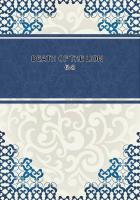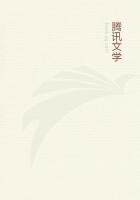Fourthly, I now come to the Fourth Inquiry, viz. How this great Parity between the Laws of England and Normandy came to be effected; and before I come to it, I shall premise Two Observables, which I would have the Reader to carry along with him through the whole Discourse, viz. First, That this Parity of Laws does not at all infer a Necessity, that they should be imposed by the Conqueror, which is sufficiently shewn in the foregoing Chapters; and in this it will appear that there were divers other Means that caused a Similitude of both Laws, without any Supposition of imposing them by the Conqueror. Secondly, That the Laws of Normandy were in the greater Part thereof borrowed from ours, rather than ours from them, and the Similitude of the Laws of both Countries did in greater Measure arise from their Imitation of our Laws, rather than from our Imitation of theirs, though there can't be denied a Reciprocal Imitation of each others Laws was, in some Measure at least, had in both Dominions:
And these Two Things being premised, I descend to the Means whereby this Parity or Similitude of the Laws of both Countries did arise, as follow, viz.
First, Mr Camden and some others have thought, there was ever some Congruity between the ancient Customs of this Island and those of the Country of France, both in Matters Religious and Civil; and tells us of the ancient Druids, who were the common Instructors of both Countries. Gallia Causidicos docuit facunda Britannos: And some have thought, that anciently both Countries were conjoined by a small Neck of Land, which might make an easier Transition of the Customs of either Country to the other;but those Things are too remote Conjectures, and we need them not to solve the Congruity of Laws between England and Normandy.
Therefore, Secondly, It seems plain, that before the Normans coming in Way of Hostility, there was a great Intercourse of Commerce and Trade, and a mutual Communication, between those Two Countries;and the Consanguinity between the Two Princes gave Opportunities of several Interviews between them and their Courts in each others Countries: And it is evident by History, that the Confessor, before his Accession to the Crown, made a long Stay in Normandy, and was there often, which of Consequence must draw many of the English thither, and of the Normans hither; all which sight be a Means of their mutual Understanding of the Customs and Laws of each others Country, and gave Opportunities of Incorporating and ingrafting divers of them into each other, as they were found useful or convenient; and therefore the Author of the Prologue to the Grand Custumier thinks it more probable, That the Laws of Normandy were derived from England, than that ours were derived from thence.
Thirdly, 'Tis evident, that when the Duke of Normandy came in, he brought over a great Multitude, not only of ordinary Soldiers, but of the best of the Nobility and Gentry of Normandy;hither they brought their Families, Language and Customs, and the Victor used all Art and Industry to incorporate them into this Kingdom: And the more effectually to make both People become one Nation, he made Marriages between the English and Normans, transplanting many Norman Families hither, and many English Families thither; he kept his Court sometimes here, and sometimes there; and by those Means insensibly derived many Norman Customs hither, and English Customs thither, without any severe Imposition of Laws on the English as Conqueror: And by this Method he might easily prevail to bring in, even without the Peoples Consent, some Customs and Laws that perhaps were of Foreign Growth; which might the more easily be done, considering how in a short Time the People of both Nations were intermingled;they were singled in Marriages, in Families, in the Church, in the State, in the Court, and in Councils; yea, and in Parliaments in both Dominions, though Normandy became, as it were, an Appendix to England, which was the nobler Dominion, and received a greater Conformity of their Laws to the English, than they gave to it.















